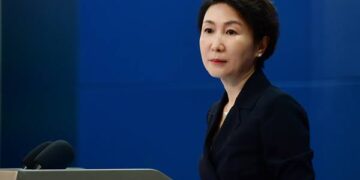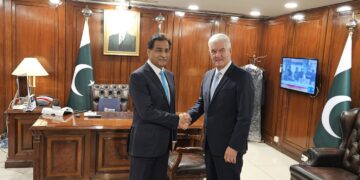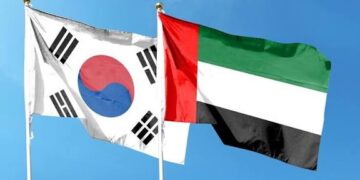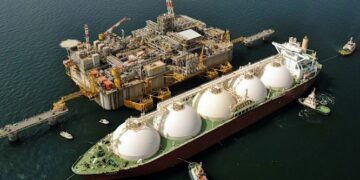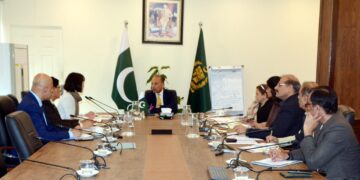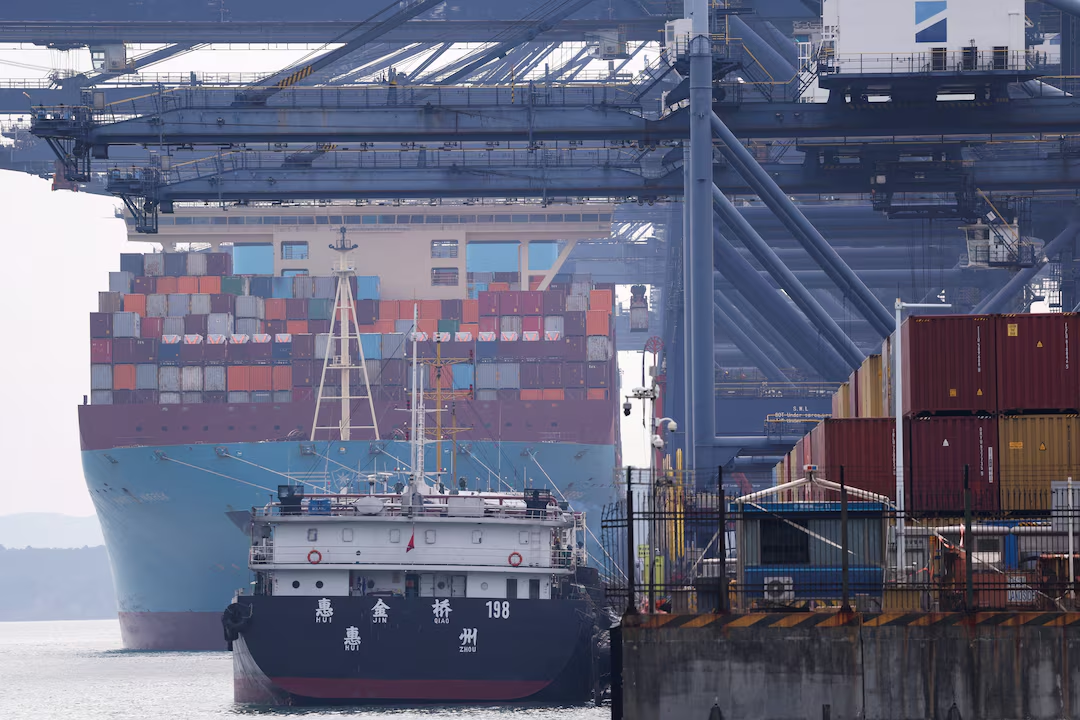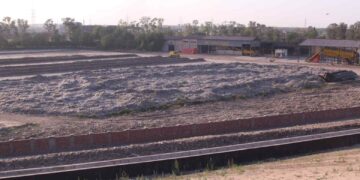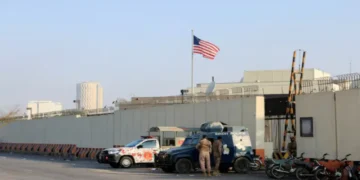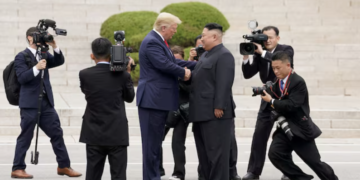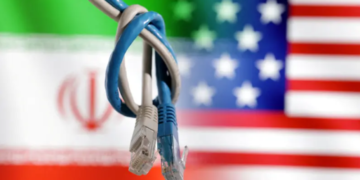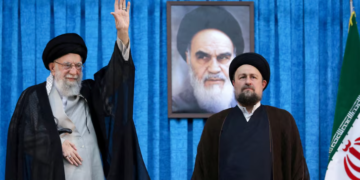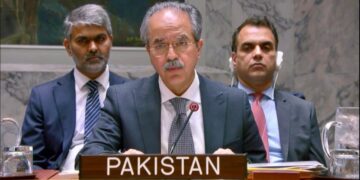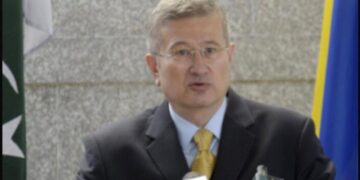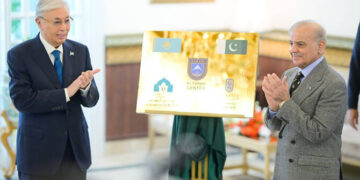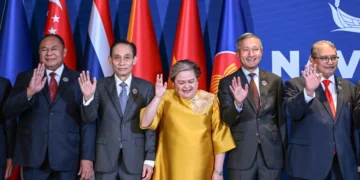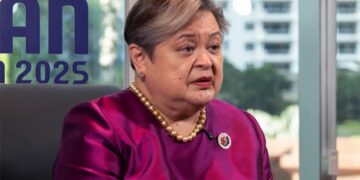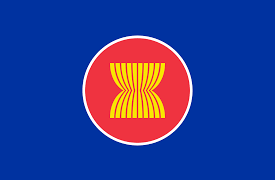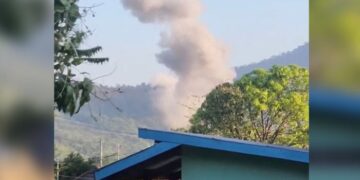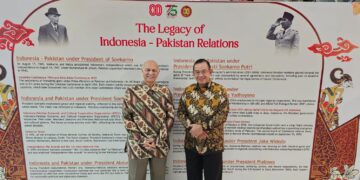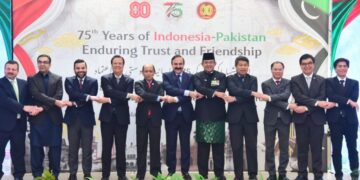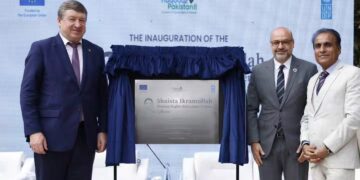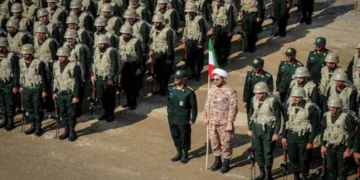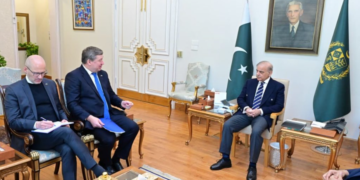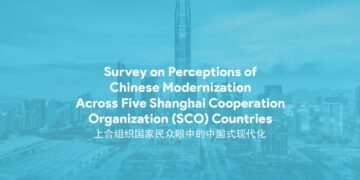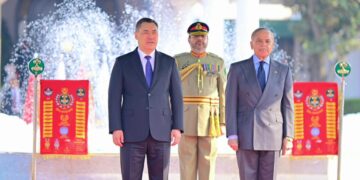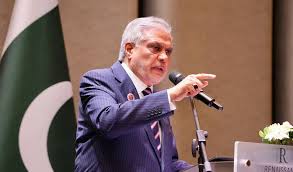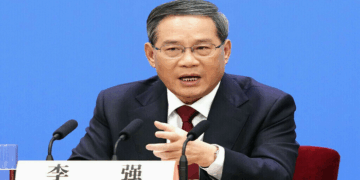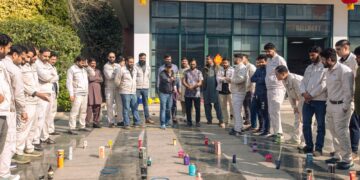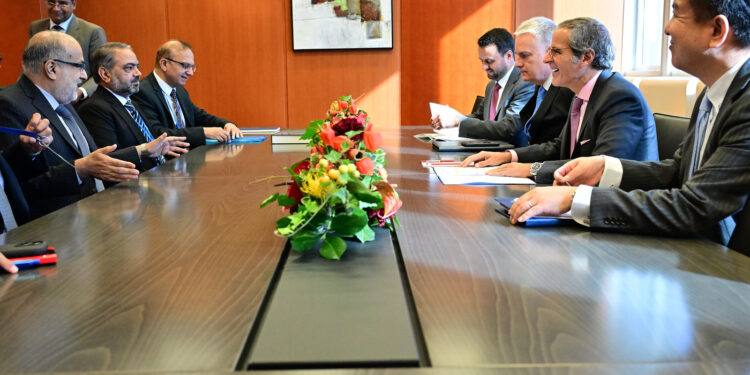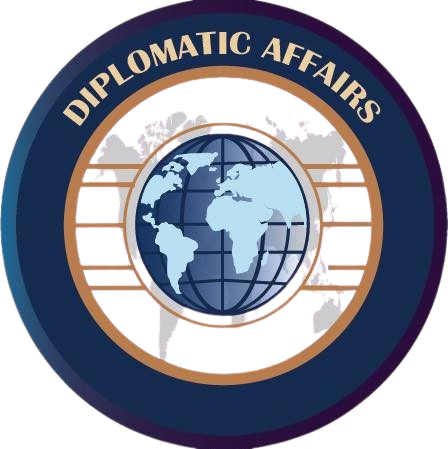Web Desk; Pakistan’s nuclear programme has been acknowledged by the International Atomic Energy Agency (IAEA) for its progress, achievements, and constructive engagement with the agency.
In a post on X, IAEA Director General Rafael Mariano Grossi praised Pakistan’s advancements after meeting Pakistan Atomic Energy Commission (PAEC) Chairman Raja Ali Raza Anwar on the sidelines of the 69th IAEA General Conference in Vienna.
Grossi highlighted that Pakistan’s nuclear power development was moving “at a good pace,” especially with the ongoing construction of Chashma Nuclear Power Plant Unit-5 (C-5). He recalled witnessing the first concrete pouring at the C-5 site in February, calling it a “major milestone” in Pakistan’s efforts to enhance energy security through clean and sustainable nuclear power.
During the meeting, the IAEA DG and PAEC chief reviewed cooperation under agency-led initiatives, including Atoms4Food, which applies nuclear science to agriculture and food security, and Rays of Hope, which works to expand access to nuclear medicine and radiotherapy for cancer patients across the Asia-Pacific region.
Grossi commended Pakistan’s active participation in capacity building, technical training, and the use of nuclear knowledge for socio-economic development. He noted that Pakistan remains a key partner in promoting peaceful uses of nuclear science and technology.
Chairman Anwar reaffirmed Pakistan’s commitment to the peaceful application of nuclear energy in line with national priorities and IAEA frameworks. He stressed that Pakistan’s nuclear power plants are operated under strict safety standards and significantly contribute to the national energy mix by providing reliable, low-carbon electricity.
The meeting also provided an opportunity to discuss Pakistan’s role in regional cooperation, where its expertise is shared with other member states.
On Wednesday, Pakistan and the IAEA signed the fifth Country Programme Framework (CPF) for 2026-2031, which builds on decades of collaboration. The new CPF identifies five priority areas—food and agriculture, health and nutrition, climate change and water management, nuclear power, and safety standards.
According to a PAEC press release, the framework will strengthen Pakistan’s socio-economic development, align with the Sustainable Development Goals (SDGs), and reinforce its role as a responsible partner in the peaceful use of nuclear technology.

